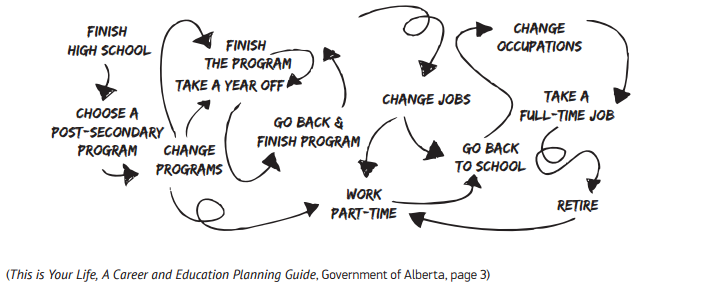
When I started working at SFU Career and Volunteer Services, aka SFU CVS, I often heard the four letters acronym, “OMEP”, which did not make any sense for me during my first couple weeks there. As soon as my supervisors introduced me to my main project for the summer Co-op term, I realized that “OMEP” is not just a weird acronym, but a lifelong philosophy that everyone should know about.
From countless time I have spent to do research for the “OMEP” project, I understood that most of the resources you use require a lot of effort to accomplish desired result you see. For example, the research that I and other research buddies did for the project, which was aimed to educate students, their family members, teachers and others about different career opportunities, useful resources and skills learned from school and major that will help to develop on a professional level, required to gather information from different sources, to analyze and organize them by order.
But what is OMEP? OMEP stands for “One Major Endless Possibilities”, which is the main philosophy of SFU CVS. If you wake up anyone who works there in the middle of a night and ask what OMEP is, everyone will give you the same answer. I assume that you are, my dear reader, already confused by what I meant earlier and probably asking “Why is that important?” Then, I would love to share two main wisdoms I have learned from the OMEP project and which might help you too.
Your Major Doesn’t Define You and Your Future Job. It’s a Piece That Completes You as Who You Are
What’s one of the biggest choices everyone age 17 to 22 is stressing about? Choosing the right major that will help you to decide the kind of life you are going to live after you finish your degree. The thinking that “A leads to B” is not always right. Just because you like something now doesn’t mean that you will like it later on.
So many friends of mine who graduated from university with different degrees ended up with jobs that are in no way related to their major. Classes and teachers teach us what our major may or may not turn out the way as we expected it would. So, study what you’re passionate about and do what you want to do NOW, because we never know how life might change later. Who knows, maybe after so many years I will change my Communication field to something else?
Admit it, you’ve heard people say it million times: “Go to school, finish your degree, get a good job, work hard and retire when you’re 65”. Sounds like a traditional plan you might have in your mind, huh? You choose a major, a career related to your major, and work at the same place or occupation for the rest of your life until you retire. Here’s how that linear career path might have looked traditionally:

However, with constant changes in the job market, emerging technologies and opportunities we encounter daily; many of us are following non-linear career paths today. What does it mean? Your career path is not a linear ladder, it’s more like a chaotic jungle gym that’s always changing. Here’s how it looks like today:

It doesn’t mean that there’s something wrong with you if you want to change your program or occupation. You always have to ask yourself questions like: What do I want to keep doing, what can I learn from this and what makes me happy? Listen to your heart and don’t hesitate with your choices because you know better than anyone else what you want from this life.
If you want to learn more about our philosophy or don’t know what to do with your major, you can always visit SFU CVS at MBC 0300 or visit the SFU Career and Volunteering Services to know more about the services you can use.













